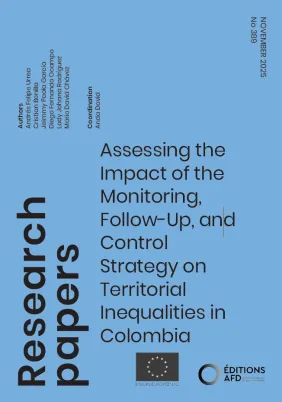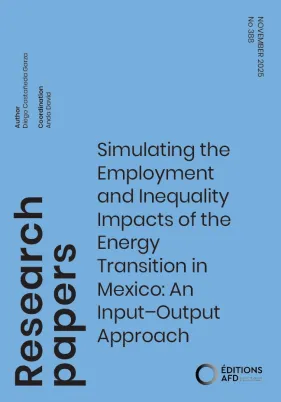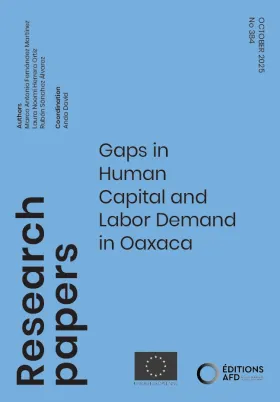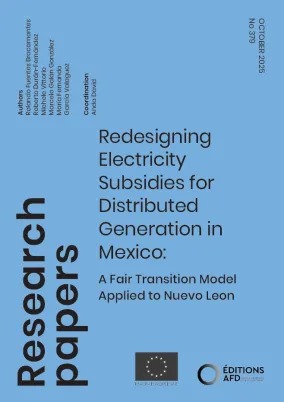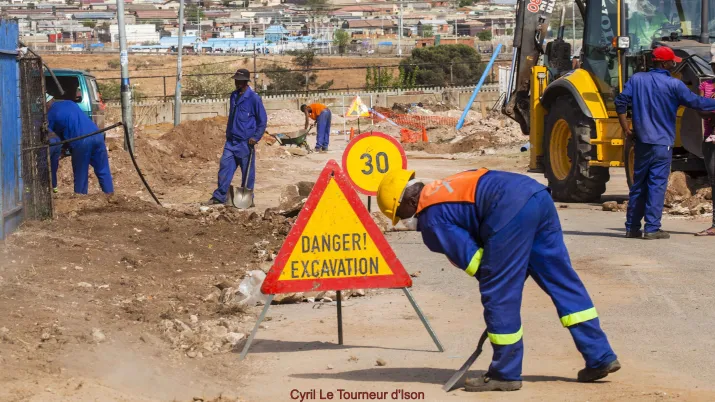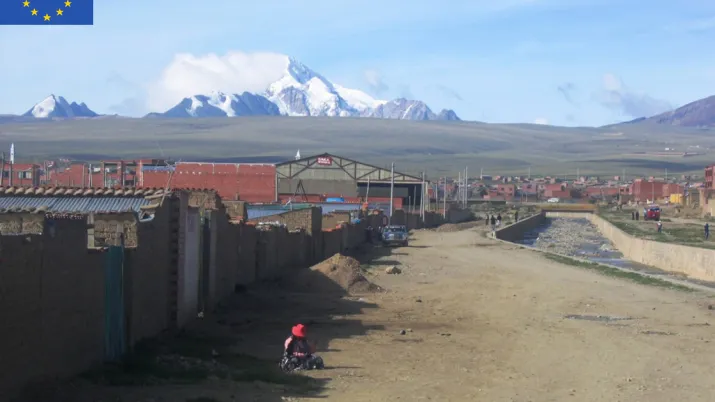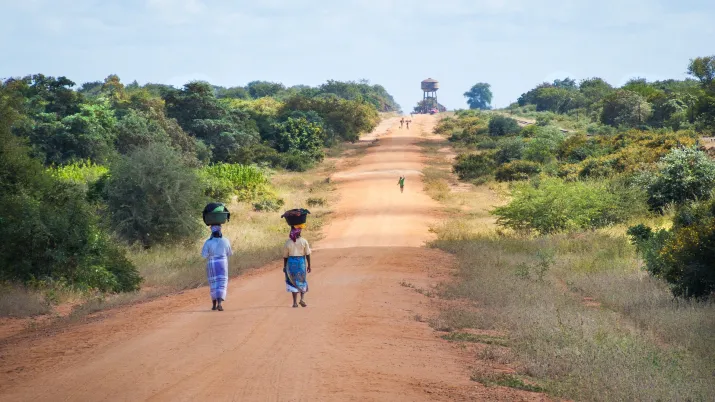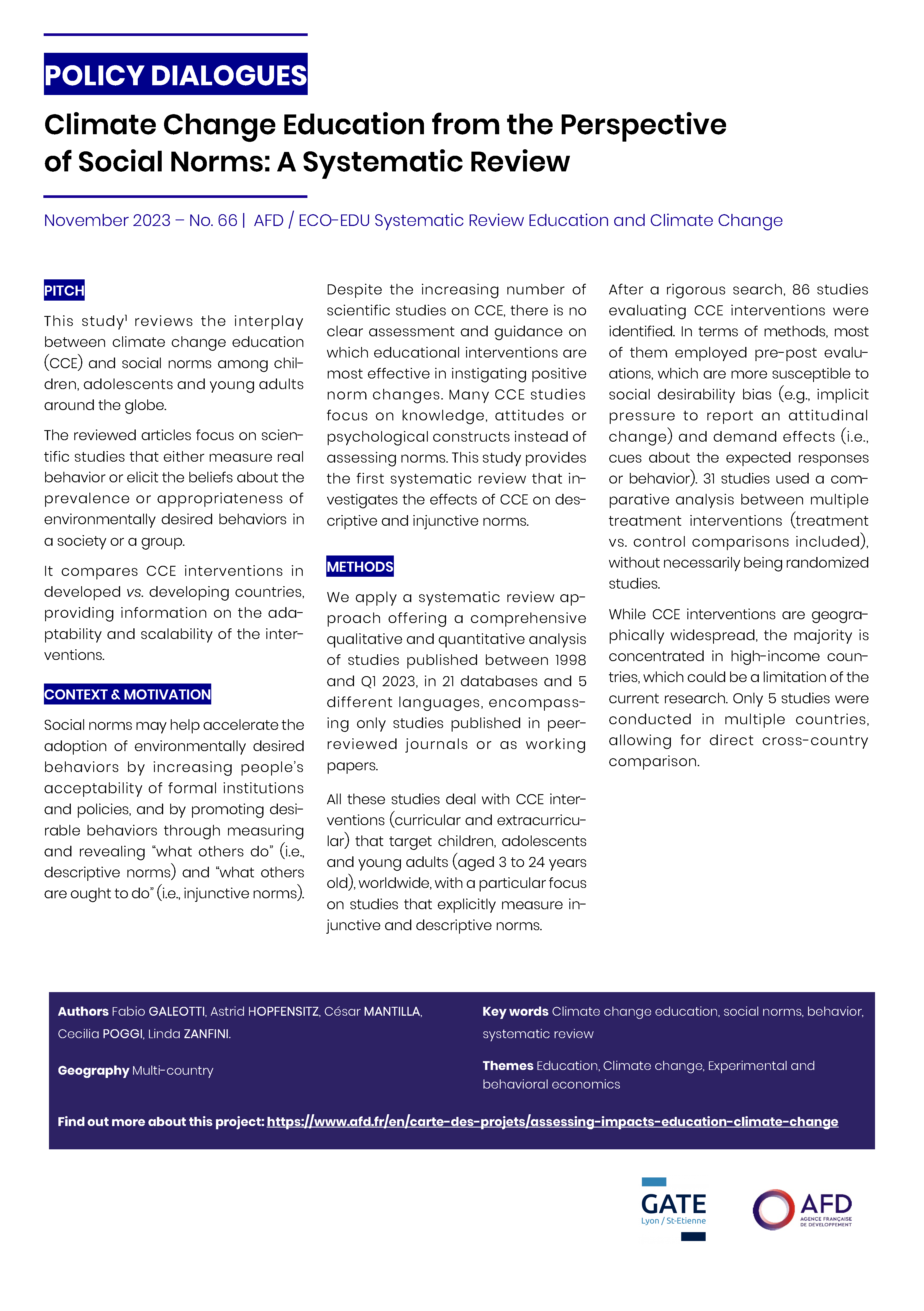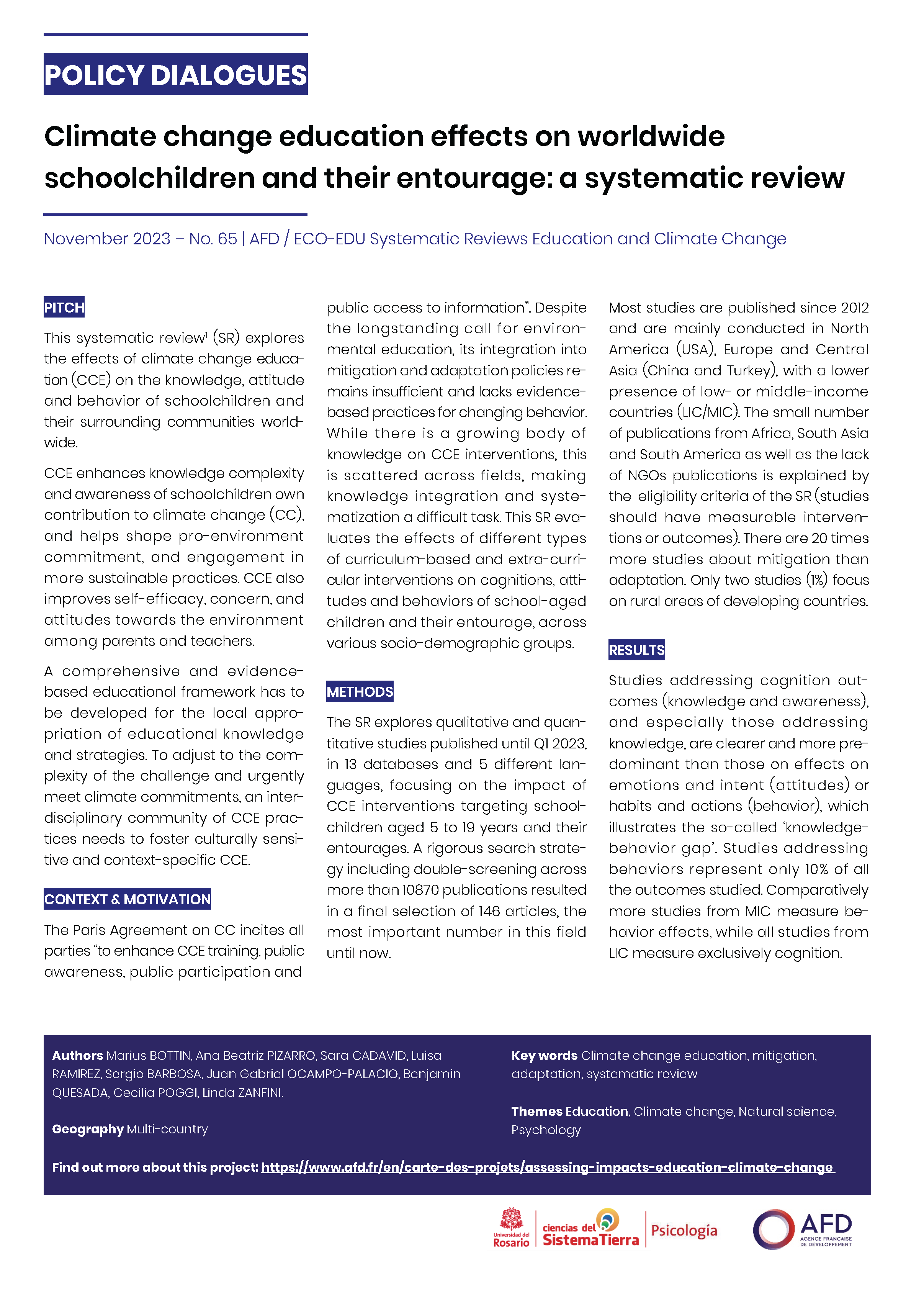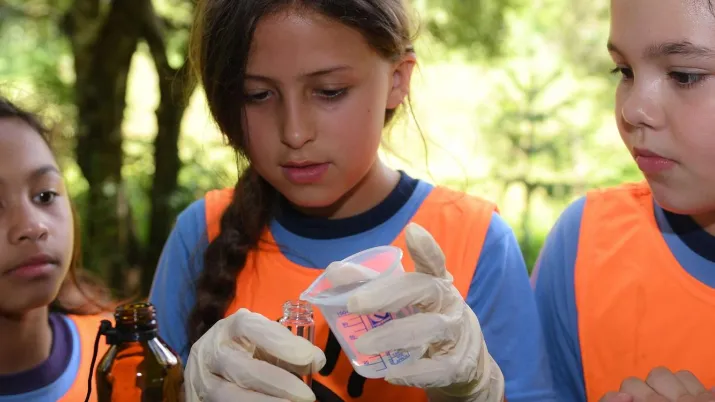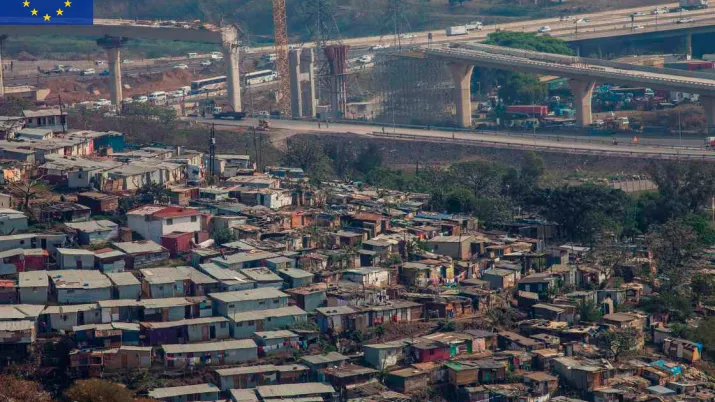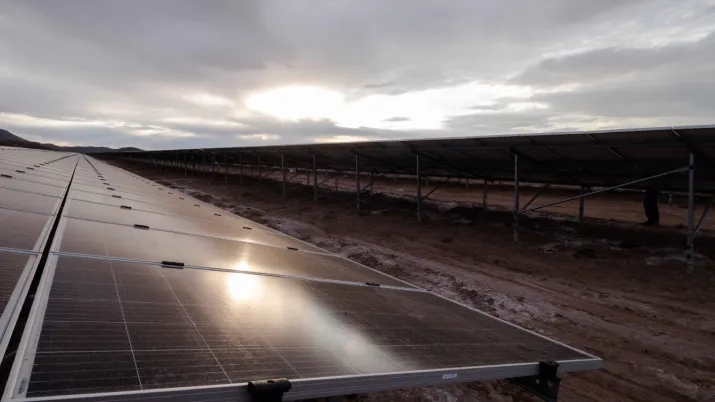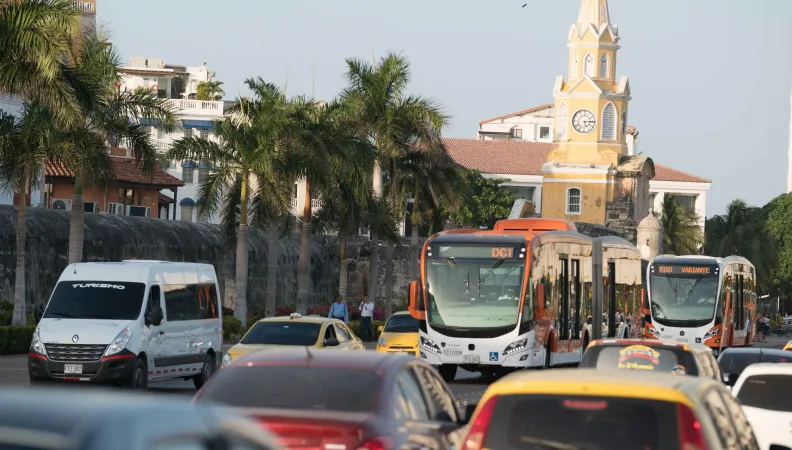 Legal notice EU (project) What has been the redistributive impact of social and fiscal policies in Mexico and Colombia, in the context of the policies implemented during the Covid-19 pandemic? The EU-AFD Research Facility on Inequalities will seek to answer this question in collaboration with the Institute for Inequality Studies (INDESIG).
Legal notice EU (project) What has been the redistributive impact of social and fiscal policies in Mexico and Colombia, in the context of the policies implemented during the Covid-19 pandemic? The EU-AFD Research Facility on Inequalities will seek to answer this question in collaboration with the Institute for Inequality Studies (INDESIG).
Context
While there is mounting evidence that the Covid-19 pandemic has increased socioeconomic inequality, there is still a need to understand the exact channels of impact and what role the policy response has played in different contexts. It is also necessary for governments to be clear about the efficiency of the type of policies they have implemented throughout this period, in terms of the redistributive and/or regressive effect both from an inequality and poverty perspective. Indeed, we know that the amount of additional social spending (excluding health) implemented during the pandemic reached almost 3% of GDP in Colombia and only 0,2% in Mexico. However, research has not yet demonstrated whether the redistributive policies introduced by the Mexican and Colombian governments in response to the Covid-19 crisis have had any positive effect on the distribution of economic and social resources in these two countries.
This project is part of the call for research proposals “Advancing the inequality agenda through collaborative research: identifying the priorities for a global Team Europe approach on inequalities”, launched by the Strategic Committee of the Research Facility on Inequalities. It is coordinated by AFD and co-financed by the European Commission, AECID and ENABEL.
Objective
The project will seek to understand what has been the redistributive impact of social and fiscal policy in Mexico and Colombia, in the context of the policies implemented during the Covid-19 pandemic.
Method
This research project will be conducted as follows:
- Using the framework of the Commitment to Equity (CEQ) methodology, an analysis aiming to differentiate what has been the progressivity or regressivity of the policies implemented during the Covid-19 pandemic will be conducted. This analysis will take into account the main beneficiary groups of these policies and will include a comparison between the budget amount and the efficiency of the policies identified in terms of inequality and poverty reduction.
- A desktop analysis of the decision-making will also be carried out to understand how the redistributive effects of the policies implemented were envisaged by the governments.
Results
The results of this project are presented in the following research paper: Promoting a More Progressive Approach - Evaluating the Impact of Social and Fiscal Policies in Mexico and Colombia amidst the Covid-19 Pandemic (2025)
This research paper analyzes the redistributive impact of some fiscal policies and social programmes (direct taxes and transfers) before and after the pandemic Crisis in Mexico and Colombia, following the CEQ methodology.
Contact
-
Anda DAVID
Economist, scientific coordinator of the EU-AFD Research Facility on Inequalities

Discover other research projects
 Within the framework of the ECOPRONAT research programme, AFD supports the development of methodologies to assess the environmental sustainability at the level of a territory - and more particularly in Colombia and South Africa -, using the ESGAP (Environmental Sustainability Gap) framework. This framework produces a synthetic indicator based on a dashboard to monitor the state of the environment from a strong sustainability perspective.
Within the framework of the ECOPRONAT research programme, AFD supports the development of methodologies to assess the environmental sustainability at the level of a territory - and more particularly in Colombia and South Africa -, using the ESGAP (Environmental Sustainability Gap) framework. This framework produces a synthetic indicator based on a dashboard to monitor the state of the environment from a strong sustainability perspective.
Context
Public actors need to monitor the state of the environment in order to assess the effectiveness of their actions, prioritize management policies and measures, and thus objectively establish their contribution to the conservation of natural capital. To do so, they must be able to rely on science-based standards to identify the thresholds at which environmental functions can be considered sustainable.
The ESGAP (Environmental Sustainability Gap) is an innovative tool for assessing the condition of a territory’s environmental functions and how sustainable they are. For all critical components of natural capital in the territory concerned (air or water quality, pollution, forest resources, fisheries, etc.), this indicator calculates the difference between their current state and a state that would be sustainable (i.e., a state compatible with the sustainable functioning of the processes necessary for the preservation of life, human activities and well-being). This allows for the calculation of the “environmental sustainability gap”, which highlights the path to environmental sustainability. This can then serve as a guide for public policies to estimate and preserve the critical functions of the natural capital of a given territory. ESGAP has already been tested in New Caledonia, Kenya and Vietnam.
Within the framework of the ECOPRONAT research programme, AFD aims to develop methodologies for assessing strong sustainability, that is, adopting demanding criteria concerning the non-substituability of natural capital by other forms of capital (physical among others) in a territory or country. AFD also wants to promote their use in international frameworks and contribute to emerging international standards on the good ecological state of ecosystems.
Find out more about ECOPRONAT
Objectives
Building on the previous work of University College London (UCL) on the application of ESGAP in countries of the Global South, this research project led by UCL aims to implement the ESGAP framework in Colombia and South Africa. It will test its relevance in fostering public policy dialogue in these two countries that already have a regulatory framework and natural resources management, but where not all data on biodiversity is available.
More specifically, this project has four objectives:
- Developing the ESGAP components related to biodiversity and the state of ecosystems that could be used by Colombian and South African governments, and promoting the use of science-based targets for ecosystem maintenance;
- Promoting reflection on strong sustainability in Colombia and South Africa through the ESGAP framework, by assessing whether the activities carried out in these countries are within the safe operating space for humanity;
- Clarifying how the ESGAP framework aligns, complements and adds value to other types of existing sustainability indicators that national governments are already using;
- Strengthening the capacity of partner countries to implement the ESGAP framework beyond this research project.
Method
The ESGAP framework is based on a dashboard that provides information on changes in the functional state of 23 components of the environment, focusing on the gaps that exist between these changes and the objectives of maintaining or achieving a "good environmental state". These components cover the 4 main categories of critical and essential environmental functions: resource provision, pollution reprocessing, biodiversity and human health. The scores for each of the twenty-three components are then aggregated to form a synthetic indicator and a dynamic indicator.
The research activities in the two pilot countries is carried out by researchers from Stellenbosch University (South Africa) and the National University of Colombia (UNAL). Capacity building will include training four postgraduate students as well as awareness-raising activities targeting policymakers and other stakeholders, in order for them to take ownership of the ESGAP and use it during public policy formulation.
Expected results
The research teams will produce scientific papers on the relationship between the ESGAP framework and other sustainability indicator initiatives, as well as on the work and calculations of the ESGAP indicators carried out in each country, comparing the cases of Colombia and South Africa. A specific report will be produced on indicators of the state of biodiversity and ecosystems as well as the identification of data sources for the two countries studied.
In addition, an international workshop will be organized to present the complementarities between the ESGAP framework and relevant initiatives of existing sustainability indicators.
Finally, the research team intends to produce several documents for decision-makers and public policy actors:
- A summary of the review of biodiversity indicators and the state of ecosystems, which may be useful for negotiations at the Conferences of the Parties (COPs) to the Convention on Biological Diversity and for the design of national biodiversity strategies and action plans (NBSAPs);
- A webinar with a webinar report on the relationship between the ESGAP framework and other international sustainability reporting initiatives;
- A summary for decision-makers in each partner country on the rationale of the strong sustainability development approach and the methodology and ESGAP indicators that enable it to be implemented.
Download the publications related to the project:
- The SDGs Provide Limited Evidence That Environmental Policies Are Delivering Multiple Ecological and Social Benefits, Earth's Future vol.12 (May 2024)
- Enhancing Environmental Sustainability Through the Environmental Sustainability Gap (ESGAP) Framework in Colombia, Policy Dialogues n°67, Editions Agence française de développement (October 2024)
- Strong sustainability in the SEEA and the wider indicator landscape, One Ecosystem (May 2025)
- Assessing environmental sustainability in Colombia: Metrics and policy recommendations, Environmental and Sustainability Indicators n°27 (September 2025)
A "Research Conversations" webinar presented the results of the articles to the scientific community in November 2024:
Contact
-
Oskar LECUYER
Research Officer, Environmental Economist
Discover other research projects
- Read more about Assessing the concrete effects of climate change education on ecological transitions
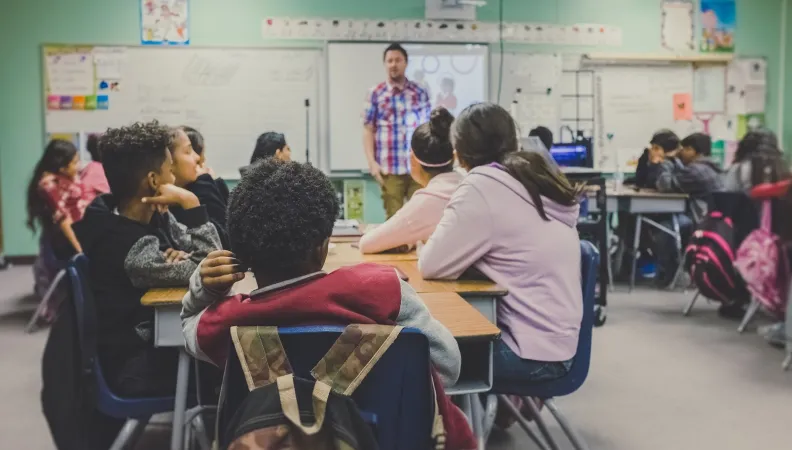 Schoolchildren in a classroom. AFD funded two systematic literature reviews to assess the concrete effects of climate change education (CCE) on ecological transitions. By examining their impact on the knowledge, attitudes and behaviours of schoolchildren, young adults and their entourage, these studies led to recommendations for researchers and decision-makers in the field of education.
Schoolchildren in a classroom. AFD funded two systematic literature reviews to assess the concrete effects of climate change education (CCE) on ecological transitions. By examining their impact on the knowledge, attitudes and behaviours of schoolchildren, young adults and their entourage, these studies led to recommendations for researchers and decision-makers in the field of education.
Context
Climate change education (CCE) encompasses school and out-of-school activities that: teach skills and knowledge about climate change mitigation (such as sustainable lifestyles) and adaptation (such as disaster risk reduction); promote safe and sustainable learning spaces; actively engage communities as agents of change; and strengthen collaboration between policy makers and researchers in education and climate. It can take different forms (laboratory activities, school projects, etc.).
Despite the growing number of scientific studies on CCE, the concrete effects of these educational interventions remain uncertain. This is why, following a call for research proposals, AFD has selected two projects for systematic reviews of the existing literature and its main gaps:
- The first project focuses on the effects of climate change education on the knowledge, attitudes and behaviours of schoolchildren and their entourage; it is carried out by a team of researchers from the departments of psychology and natural sciences of the University of Rosario in Colombia.
- The second focuses on the effects of climate change education on behaviour and norms; it is led by a team of researchers from the Groupe d’Analyse et de Théorie Economique (GATE-CNRS) and the Department of Experimental Economics at the University of Rosario in Colombia.
Objectives
The study conducted by the University of Rosario analyses the impacts of climate change education according to the type of intervention (“traditional”, immersive, innovative teaching activities, etc.) and the strategies mobilized (based on knowledge, habits, emotions…). It aims to assess the effects of these different interventions on the knowledge, attitudes and behaviours of preschool and school-age children and their entourage, with a focus on their sociodemographic characteristics.
The study led by GATE-CNRS examines the impact of climate change education on the behaviours and the social norms that shape behaviors and expectations of children and young adults within society, through the prism of behavioral sciences. It aims to identify educational activities and content that promote changes in social norms, as well as possible cognitive biases and cultural and normative barriers. This systematic review will be supplemented by a research experiment conducted by GATE-CNRS.
Method
Both research projects are based on systematic reviews, namely rigorous and reproducible syntheses of the results of all existing original studies answering the same research question, which makes it possible to identify, select, evaluate and summarize primary studies, data and research findings on this issue.
The study led by the University of Rosario adopts the PIO (Population, Intervention, Results) methodology, which helps in the formulation of the research question and the realization of bibliographic research. A comparative analysis is then conducted to assess the effects of education on different populations (for example, younger students versus older students, etc.).
The study conducted by GATE-CNRS uses the PICO (Population, Intervention, Comparison, Result) approach, in which a comparative analysis allows to evaluate the most popular, effective or reliable types of interventions from a methodological point of view, behaviours and social norms, with a focus on intervention contexts. An experimental study conducted in France and Colombia will then aim to fill some gaps observed in the literature by testing two hypotheses:
- immersive educational activities are more effective than traditional activities in inducing pro-environmental behaviours and normative changes;
- the level of adherence to norms and civic engagement in both countries result in a different propensity to engage.
Research findings
Each of the two research projects resulted in a “Policy Dialogue” publication, presented at COP28, as well as a research paper published in the collections of Editions Agence française de développement. The project of the GATE-CNRS team will also give rise to a second research paper presenting the results of the field experiment.
Download the publications:
- Climate change education from the perspective of social norms: A systematic review (AFD Research Papers, November 2023) and the associated "Policy Dialogue" publication
- Worldwide effects of climate change education on the cognition, attitudes, and behaviors of schoolchildren and their entourage (AFD Research Papers, November 2023) and the associated "Policy Dialogue" publication
A webinar from the “Research Conversations” series, held in April 2025 to present the latest findings, is available for replay (in French with English subtitles):
Lessons learned
The two systematic literature reviews highlight gaps in research on climate change education, but also some promising results for this area of intervention.
The study conducted by the University of Rosario highlights, among other things, the omission of the gender equality lens, the difficulties in analyzing the effectiveness of long-term interventions, and the fact that research focuses more on the effects on knowledge than on behaviour. The study also highlights that the most relevant interventions are those that mobilize innovative pedagogies, that are based on information drawing on personal experiences, and that generate positive emotions, while those based on negative emotions can have counterproductive effects.
The study led by the GATE-CNRS finds that the types of intervention are very diverse. Projects based on concrete activities, those that combine several types of interventions and those that involve several stakeholders (teachers, students, etc.) lead to more convincing results. The study also highlights the very small amount of work that focuses on social norms; the fact that this research is conducted mainly in high-income countries and in urban areas; and that it focuses on recycling and waste behaviours, easily observable, neglecting behaviours with a greater impact on climate (transport, etc.).
The results of the experimental study are expected by the end of 2025.
Contacts
- Dr. Cecilia Poggi, Research Officer, AFD
- Dr. Linda Zanfini, Research Officer, AFD
- Dr. Benjamin Quesada, Associate Professor, Earth System Science Director, Research Group Leader "Interactions Climate-Ecosystems" (ICE), University of Rosario (Colombia)
- Dr. Fabio Galeotti, CNRS researcher at the Groupe d’Analyse et de Théorie Economique Lyon St-Etienne (GATE), Head of the 'Experimental economics' research group at GATE (France)
Find out more
Climate Change Education from the Perspective of Social Norms
Published on November 22, 2023
Climate change education effects on worldwide schoolchildren and their entourage
Published on November 22, 2023
Is climate change education effective? Two AFD-supported studies provide answers
Published on May 5, 2025
Discover other research projects
 As part of the ENSLAC project, AFD is working with Yes Innovation and its partners to study and identify replicability levers for nature-based solutions in three South American countries – Ecuador, Colombia and Peru. Fifteen initiatives are analyzed in order to understand how natural ecosystems are mobilized in urban areas, what are their impacts and how nature-based solutions (NBS) could be more widely integrated into spatial and urban planning.
As part of the ENSLAC project, AFD is working with Yes Innovation and its partners to study and identify replicability levers for nature-based solutions in three South American countries – Ecuador, Colombia and Peru. Fifteen initiatives are analyzed in order to understand how natural ecosystems are mobilized in urban areas, what are their impacts and how nature-based solutions (NBS) could be more widely integrated into spatial and urban planning.
Context
Latin America is the second most urbanized region in the world, with 81% of its population concentrated there. This strong urbanization, its rapid growth and the weakness of urban planning policies affect areas of high ecological and environmental value. However, natural ecosystems can be a source of solutions for those involved in urban design and development, in particular to respond to the risks generated or exacerbated by climate change.
Understanding nature-based solutions (NBS), studying their implementation conditions and analyzing their integration into public policies is therefore necessary to ensure the livability of cities in the long term. While NBS and green infrastructure are still recent in the urban landscape, initiatives have been deployed for several years and are a privileged source of data to exploit.
This project is part of the ECOPRONAT research programme, which supports research on how to better take into account biodiversity and mainstream it into key economic sectors.
Objectives
The ENSLAC (Enabling Nature based solutions Scale-up in Latin American Cities) project aims to analyse the mechanisms that enable the scale-up of nature-based solutions implementation in Latin American cities, drawing on 15 case studies in Peru, Colombia and Ecuador. This research approach aims to:
- Analyze the challenges of ecological restoration for the management of risks related to the impacts of climate change in urban areas;
- Understand the levers for using NBS as a tool for urban planning and development;
- Identify the temporal, technical, cultural, political, social, financial and cooperative processes that have enabled large-scale NBS-based projects;
- Assess the influence of national or supranational strategies and policies on NBS development;
- Disseminate the knowledge produced by focusing on formats and channels that can be used for the training of urban development actors.
To explore these issues, Yes Innovation, based in Quito, works with the Humboldt Institute for Biological Resources Research, an institution linked to the Ministry of the Environment of Colombia, and Periferia Territorios Vivos, a Peruvian organization specialized in urban planning with an ecological approach.
Method
This research project uses two analytical tools (depending on the case study and the available field data):
- Temporal and spatial analysis (known as BA/CI, which refers to a Before/After and Conservation/Intervention analysis);
- Comparative analysis between case studies on NBS and reference cases of comparable characteristics but without implementation of NBS.
Results
The ENSLAC research project aims to:
- Understand mechanisms that enable scale-up of nature-based solutions as a tool for urban and peri-urban planning;
- Identify replicability levers of these NBS for Latin American cities;
- Produce training materials for urban development actors.
The research team presented its findings during a webinar from the Research Conversations series. The replay is available below (in French and Spanish).
Find out more
Contact
-
Julien CALAS
Research Officer on Biodiversity

